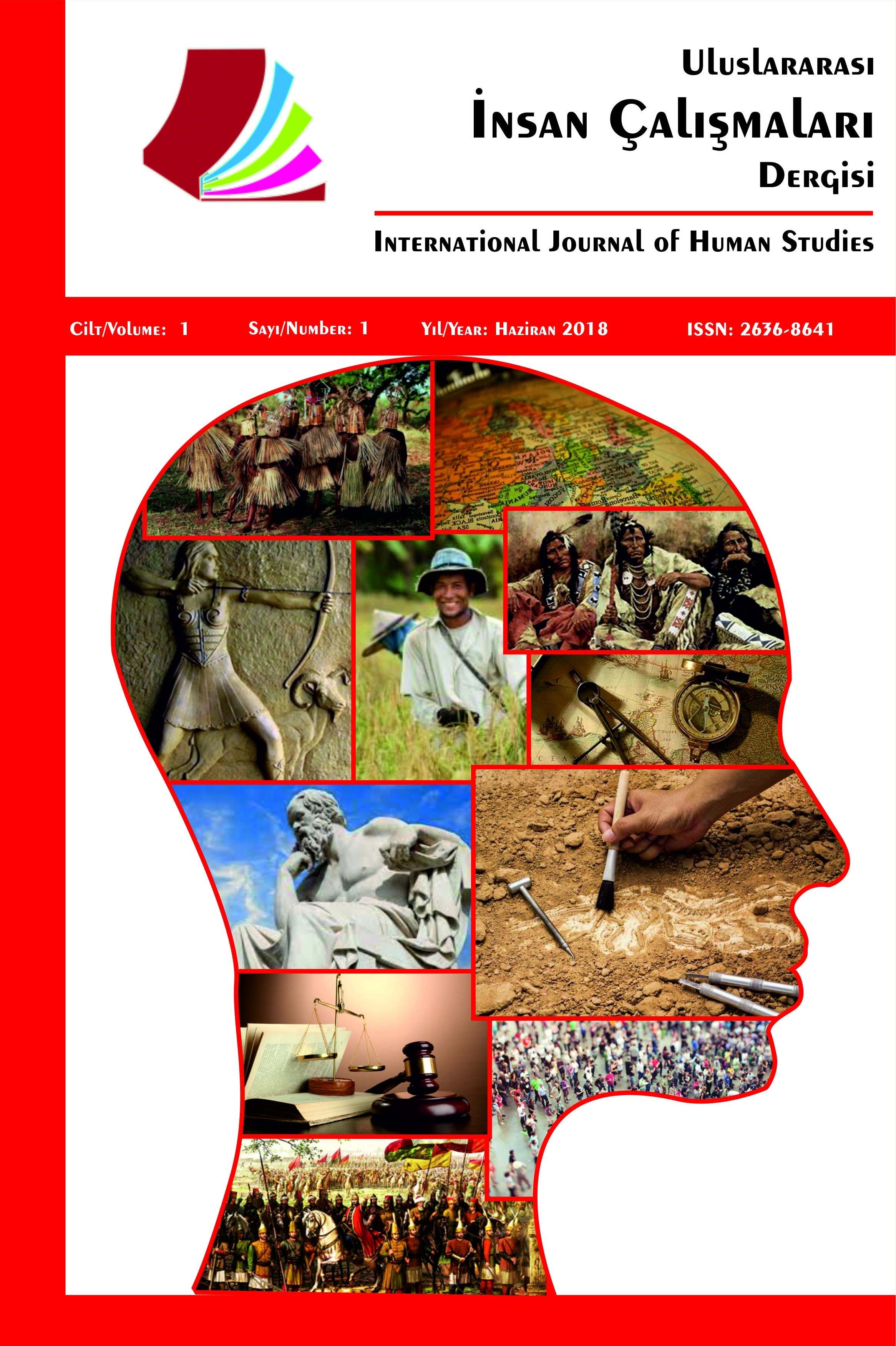Freudyen Kalıntıların Geri Dönüşü: Suat Derviş’in Ne Bir Ses Ne Bir Nefes Romanında Ödipal Çatışma ve Kıskançlık
20. yüzyılın başlarında İstanbul’da dünyaya gelen Suat Derviş, gazeteciliğinin yanı sıra yazdığı romanlar, makaleler ve çevirilerle de tanınmaktadır. Yazdığı tefrika romanlarının sayısının otuzdan fazla olduğu bilinen Derviş, yazıları yurt dışında yayımlanmış ilk Türk kadın gazeteci olarak da öne çıkmaktadır. 1944 ve 1945 yıllarında tefrika edilen Fosforlu Cevriye romanının yanı sıra, 1921 yılında yayımladığı Kara Kitap adlı romanı Türk edebiyatında korku türüne örnek verilebilecek nadir eserlerden biridir. Yazın hayatının ilk başlarında korku ve gotik öğeleri eserlerinde yansıtarak kasvetli mekân tasvirlerine, karakterlerin psikolojik irdelemelerine, gerilim ve tekinsizlik kavramlarına yoğunlaşmıştır. Cumhuriyet ve modernleşme sürecinde gerçekliğin temsiline gerçeküstü olaylar barındıran romanlarıyla tepki göstermiş, Türk edebiyatında çok değinilmemiş olan mantıkdışı ve hayali unsurları ön plana çıkarmıştır. Buna benzer olarak da ikinci romanı olan Ne Bir Ses Ne Bir Nefes (1923), aynı kadına âşık olan yaşlı bir baba ve oğlunun arasındaki psikolojik gerilimi anlatmaktadır. Roman boyunca Osman ve Kemal arasındaki kıskançlık ve gerilim dolu baba oğul ilişkisini betimleyen Suat Derviş, delilik ve mantık arasında gidip gelen paranoyak karakterlerin tekinsiz davranışlarını resmetmektedir. Osman ve Kemal’in baba oğul olarak Zeliha’ya karşı hissettikleri âşk ve kıskançlık, on dokuzuncu yüzyılın sonlarına doğru Sigmund Freud tarafından ortaya atılan ‘’Oidipus Kompleksi’’ adlı psikanalitik kavramla birebir denk düşmektedir. Bu nedenle bu çalışma, Suat Derviş tarafından kaleme alınan Ne Bir Ses Ne Bir Nefes adlı romanda, aynı kadına âşık olan baba ve oğul arasındaki çatışmanın, Oidipus kompleksi ve Othello sendromu ile bağdaştırılabileceğini, Freud’un teorilerinden yararlanarak ortaya koymayı amaçlamaktadır.
Anahtar Kelimeler:
Oidipus Kompleksi, Suat Derviş, Ne Bir Ses Ne Bir Nefes, Roman, Türk Edebiyatı
The Return of Freudian Remnants: The Oedipal Conflict and Jealousy in Suat Derviş’s Ne Bir Ses Ne Bir Nefes
Born in Istanbul at the beginning of the 20th century, Suat Derviş is known for her novels, articles, and translations, as well as her journalism. Having more than thirty serialized novels written by her, Derviş is also accredited as the first Turkish woman journalist whose articles were published abroad. Besides Fosforlu Cevriye, which was serialized in the years 1944-1945, Kara Kitap, published in 1921, is one of the rare works that can be considered as an example of the horror genre in Turkish literature. At the beginning of her literary life, she focused upon gloomy place descriptions, psychological analysis of the characters, terror, and the uncanny concepts by reflecting the horror and gothic elements in her works. In the republic and modernization process, she reacted to the representation of reality by means of her novels containing surreal events, and highlighted the importance of the illogical and imaginary elements that were not mentioned much in Turkish literature. Likewise, her second novel named Ne Bir Ses Ne Bir Nefes (1923) describes the psychological tension between an elderly father and son who fall in love with the same woman. Depicting the jealousy and tension-filled father-son relationship between Osman and Kemal throughout the novel, Suat Derviş depicts the uncanny behavior of paranoid characters, who primarily oscillate between madness and sanity. The adoration and jealousy that Osman and Kemal feel towards Zeliha as father and son coincide with the psychoanalytic concept of Oedipus Complex, which was coined by Sigmund Freud towards the end of the nineteenth century. Therefore, this study aims to reveal that the conflict between a father and a son, who fall in love with the same woman, in Ne Bir Ses Ne Bir Nefes authored by Suat Derviş can be associated with the Oedipus complex and Othello syndrome, by making use of Freud’s theories.
Keywords:
Oedipus Complex, Suat Derviş, Ne Bir Ses Ne Bir Nefes, Novel, Turkish Literature,
___
- Derviş, S. (2020). Kara Kitap. İstanbul: İthaki.
- Fear, R. (2015). The Oedipus Complex: Solutions or Resolutions?. London: Karnac Books.
- Grosz, E. (1990). Jacques Lacan: A Feminist Introduction. New York: Routledge.
- Freeman, T. (2008). Psychoanalytic Concepts of Fatherhood: Patriarchal Paradoxes and the Presence of an Absent Authority. Studies in Gender and Sexuality, 9(2), 113-139. Doi: 10.1080/15240650801935156
- Freud, S. (1976). The Complete Psychological Works of Sigmund Freud. New York: W. W. Norton & Company.
- Freud, S. (1989). The Ego and the Id. New York: W. W. Norton & Company.
- Freud, S. (1980). The Interpretation of Dreams. New York: Avon.
- Marty, F. (2017). Ergenlikte Anne ve Baba Katilliği Üstüne. Psikanaliz Yazıları: Bireysel ve Toplumsal Travmalar II (ss. 151-166). İstanbul: Bağlam.
- Spiro, M. E. (1983). Oedipus in Trobriands. Chicago: Chicago University Press.
- Başlangıç: 2018
- Yayıncı: Zeynel KARACAGİL
Sayıdaki Diğer Makaleler
Bir Sivil Toplum Kuruluşunda Örgüt İklimi ile Örgütsel Bağlılık Arasında İlişkinin Araştırılması
Kursad BAYDİLİ, Özge ÖZCAN, Güven BEKTEMÜR
Ishiguro’nun Gömülü Dev Romaninda Bireysel ve Kolektif Hafıza
Benjamin’de Marksizm ve Sürrealizm İlişkisi
Sibel CENGİZ, Kutay ÜSTÜN, Berivan VARGÜN
Sağlık Coğrafyası ve Halk Sağlığı Uygulamaları
